Albania cannabis fiefdom at heart of European traffic
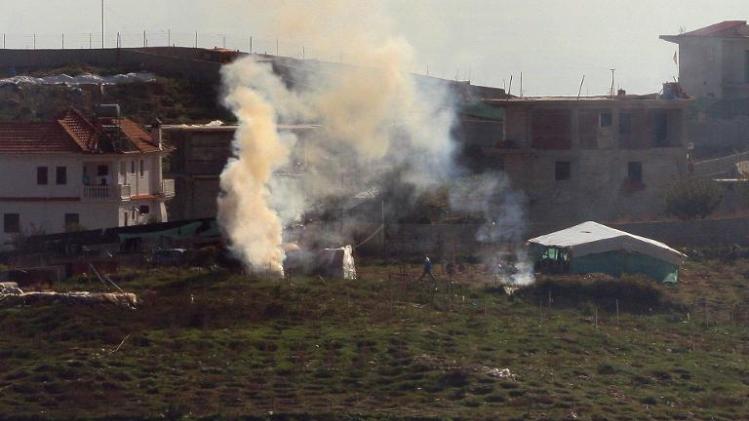
Welcome to Lazarat, a notorious fiefdom of cannabis production in southern Albania.
International police officials say Albania has become Europe's main marijuana supplier, much of it coming from Lazarat -- whose 2,000 inhabitants, with help from seasonal workers, produce about 900 tonnes of marijuana per year.
That is worth an estimated 4.5 billion euros ($6 billion), nearly a third of the Albanian economy, experts say.
Cannabis is illegal in the Balkan country, but many say the police are unable or unwilling to intervene in lawless Lazaret.
Wary of putting innocents in the crossfire, they have so far launched only minor operations in the village, where armed guards have a history of opening fire to chase off the authorities.
"Criminals use women and children as human shields whenever police want to intervene," analyst Aleksander Cipa told AFP. "The police retreat to avoid hurting innocent victims."
'The law of silence'
Workers don't need any documents to be hired in Lazaret, sometimes not even a name. It is enough to say where you come from.
Shabby vans and small cars take them for 12-hour shifts, sometimes longer if they want to earn more.
Clouds of white smoke whirl from burnt cannabis stalks discarded alongside the road, plunging the entire village into a drugged torpor.
At the end of the day, crammed into the vans again, many complain of headaches, dry throat, vomiting, their hands and feet trembling.
In recent weeks, at least 700 workers have sought medical help in the nearby town of Gjirokastra.
All the patients had similar symptoms and "serious disorders from cannabis intoxication" clearly related to their work in the Lazarat fields, said Gjirokastra doctor Hysni Luka.
But in Lazarat, no glance, look or word escapes the attention of the field bosses who control the production and harvesting.
"Everyone is responsible for himself! The law of silence rules," says Genc, a young sturdy man with thick eyebrows in charge of hiring the workers.
Cannabis is the main source of income for Lazarat families. Defending the crop against competitors and possible police action, the villagers often fire Kalashnikovs in the air after night falls and workers leave the fields.
In the courtyard of a farmhouse overlooking the village, surrounded by high concrete walls topped with barbed wire, about 30 people work in silence.
Their job: to peel off buds from dried cannabis plants stored in plastic bags. Only whispers can be heard, sometimes interrupted by a child's cry of joy or tears.
"One kilo of cannabis heads fetches around 10 euros. You can also be paid by the day, which is 17 euros," says Lume, a woman in her 60s.
Ola, a three-year-old brown-haired girl, plays with cannabis leaves near her mother, Drita.
"Mum, Mum, look, the bag is full," she says, glad to help her mother, whose hands are covered with cannabis oil as she peels the plants one after another.
To save money and send more to their families, most workers have settled in abandoned houses on the outskirts of town.
A small portable gas stove, an old armchair and some bags of clothes are the only items in Drita's small room in an old empty building with broken windows and doors.
This is the temporary home she and her daughter share with at least 30 others.
Hundreds of Roma who also work in the fields have put up a make-shift settlement nearby with no electricity or running water.
Those who manage to earn more can afford housing in Gjirokastra hostels, paying one euro per night in a room for three or four people.
'Two kilos worth a tonne of wheat'
Despite the harsh conditions, work in the cannabis fields is far more lucrative than legal farming.
"The math is simple: two kilos of cannabis are worth a tonne of wheat," says 40-year-old Arben with a smile.
Like other Lazaret cannabis producers, he refuses to reveal his last name. But he proudly explains that he buys seeds in Italy or the Netherlands for four to 10 euros, which yields 0.3 to 0.5 kilogrammes to sell.
A kilo fetches 220 to 250 euros in Albania, and sells for 1,000 to 2,000 euros on the European market, he says.
Arben insists that the villagers deal only with production and packing, leaving the trafficking to unnamed "big bosses who control the markets".
Drug money is laundered in Albania or other Western countries, according to the Albanian anti-money laundering office.
Despite Albania's role as a major supplier, the authorities seize a relatively tiny amount of cannabis -- 10 tonnes last year.
The police have meanwhile struggled to deal with Lazarat.
They
recently set up checkpoints on the road into the village and arrested
about 50 people suspected of travelling to work in the cannabis fields.But several days later they took the checkpoints down and traffic returned to normal.
The newly appointed head of the national police, Artan Didi, has called for international help.
"This is a complex issue and requires cooperation between all institutions and international partners, not only the Albanian police," he said after starting the job last month.





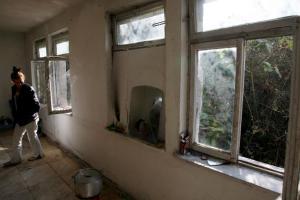
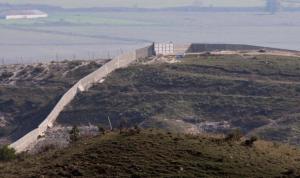
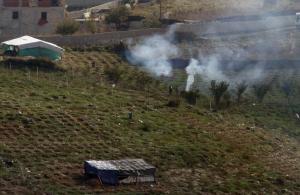
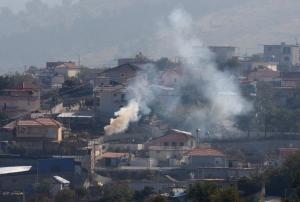
No comments:
Post a Comment